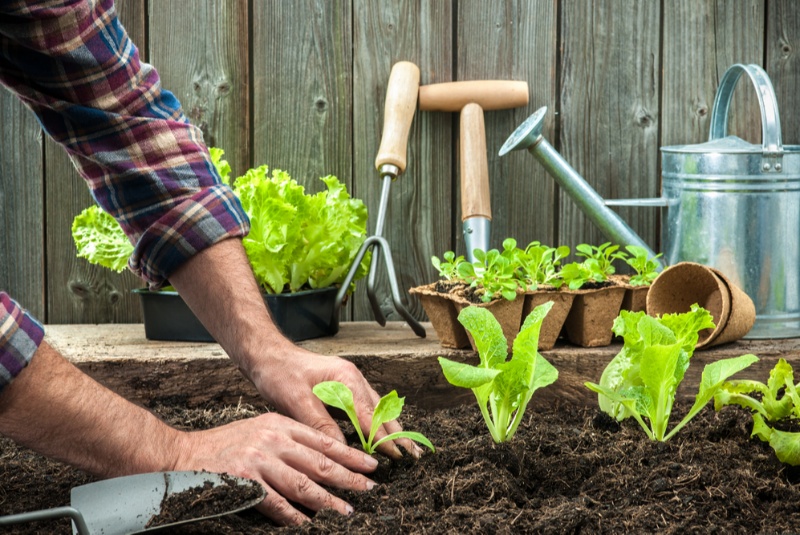In today’s fast-paced world, we often find ourselves bombarded with information about the detrimental effects of our everyday actions on the environment. Fortunately, adopting an eco-friendly lifestyle is not only beneficial for the Earth, but it can also save you money. Yes, you read that right. By going green, you can reduce your expenses and save some green in your wallet. This article will explore the surprising economic benefits of adopting an environmentally conscious way of life.
- Energy Efficiency
Energy-efficient appliances and electronics not only help conserve energy but also result in significant savings on your utility bills. By replacing old appliances with ENERGY STAR certified ones, you can save up to 30% on your energy bills. Additionally, switching to LED light bulbs can help reduce your electricity consumption by up to 80%, compared to traditional incandescent bulbs. Furthermore, investing in a programmable thermostat can automatically adjust your home’s temperature, cutting heating and cooling costs by up to 10%.
- Sustainable Transportation
Choosing eco-friendly transportation methods can also save you money. Cycling or walking instead of driving helps you avoid fuel and vehicle maintenance costs. Plus, it’s a healthy way to stay active. Public transportation is another affordable option, with many cities offering discounted fares for regular riders. If you must drive, consider purchasing a fuel-efficient or electric vehicle. These cars may have higher upfront costs, but they offer long-term savings in fuel and maintenance expenses. Electric vehicles (EVs) also benefit from various tax incentives and rebates.
- Water Conservation
Conserving water not only helps preserve this precious resource, but it can also save you money. Simple measures like fixing leaks, installing low-flow fixtures, and using a rain barrel for outdoor watering can substantially reduce your water bills. Moreover, by being mindful of your water usage, you can reduce the energy required to heat and treat water, further cutting down on utility costs.
- Waste Reduction
Reducing waste is another key aspect of eco-friendly living that can save you money. By shopping smart and buying only what you need, you can avoid wasting food and money. Opting for reusable products like cloth bags, water bottles, and food containers eliminates the need for single-use plastics and reduces your overall expenses. Composting food scraps and recycling materials also help minimize waste disposal costs.
- Thrift and DIY
Embracing a green lifestyle often involves adopting a more frugal mindset, which can lead to significant savings. Thrift shopping and swapping items with friends or neighbors are excellent ways to save money on clothing, furniture, and household items. Moreover, you can save on cleaning supplies by creating your own eco-friendly cleaning solutions using common household items like vinegar, baking soda, and lemon juice.

- Grow Your Own Food
Growing your own fruits, vegetables, and herbs not only provides you with fresh, organic produce but can also save you money on groceries. Starting a garden, even a small one, can be a rewarding and cost-effective hobby. For those with limited space, container gardening or community garden plots are great alternatives.
- Green Home Improvements
While some eco-friendly home improvements may require an initial investment, they often pay off in the long run through reduced utility bills and increased home value. Installing solar panels, for example, can save you thousands of dollars in electricity costs over the years. Similarly, upgrading your insulation or installing energy-efficient windows can help reduce heating and cooling costs, saving you money in the long run.
- Support Local Economy
Supporting local businesses, artisans, and farmers’ markets is another way to adopt an eco-friendly lifestyle while saving money. By buying local, you reduce the environmental impact of transportation, and often, locally sourced products are more affordable than their imported counterparts. Additionally, shopping at farmers’ markets can provide you with fresher, healthier produce at a lower cost, as there are no middlemen involved. This not only saves you money but also helps support your local community and economy.
- Smart Shopping Habits
Adopting eco-friendly shopping habits can also save you money. By purchasing items in bulk, you can reduce packaging waste and save on cost per unit. Choosing products with minimal packaging or opting for package-free options further reduces waste and expense. Moreover, investing in high-quality, durable items instead of disposable or cheaply made products can save you money in the long run, as they last longer and require less frequent replacement.
- Share and Borrow
Sharing and borrowing items with friends, family, or neighbors is an effective way to save money and reduce your ecological footprint. Instead of buying tools, appliances, or party supplies that you may only use occasionally, consider borrowing them or using sharing platforms to access them when needed. This not only saves you money but also helps reduce the environmental impact of manufacturing and disposing of these items.
Adopting an eco-friendly lifestyle can lead to significant financial savings. By making conscious choices regarding energy efficiency, transportation, water conservation, waste reduction, and smart shopping habits, you can reduce your expenses while contributing positively to the environment. Additionally, supporting local businesses, embracing DIY practices, and sharing resources with your community further enhances the economic and environmental benefits of going green. So, take the leap and start living a more sustainable life today – your wallet and the planet will thank you!




